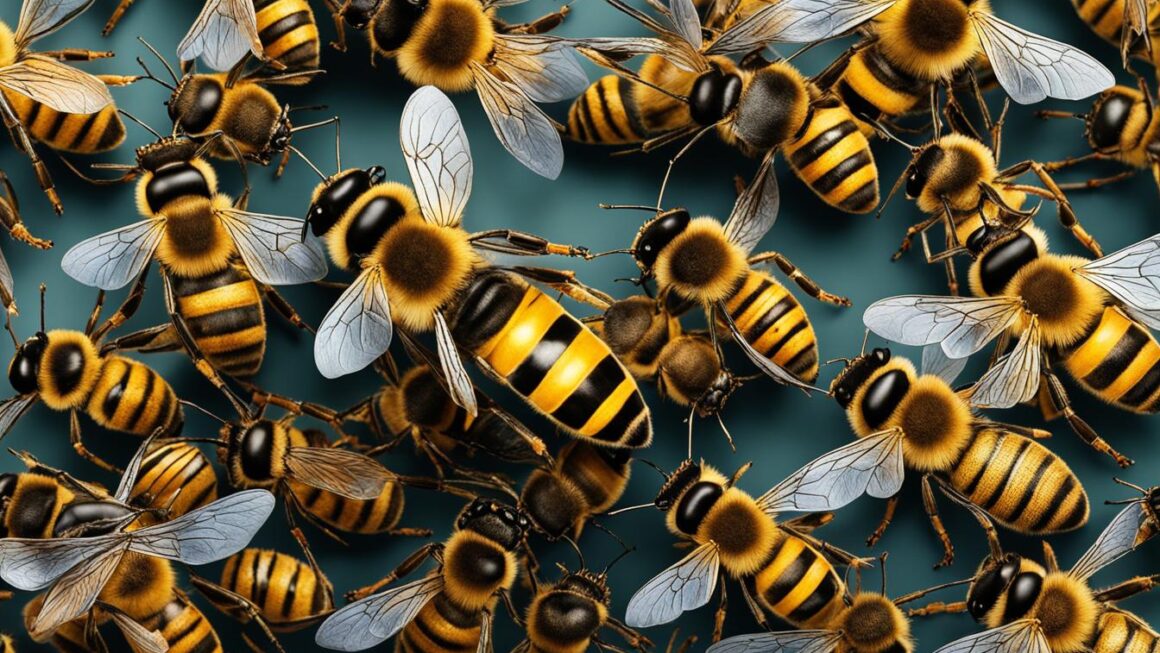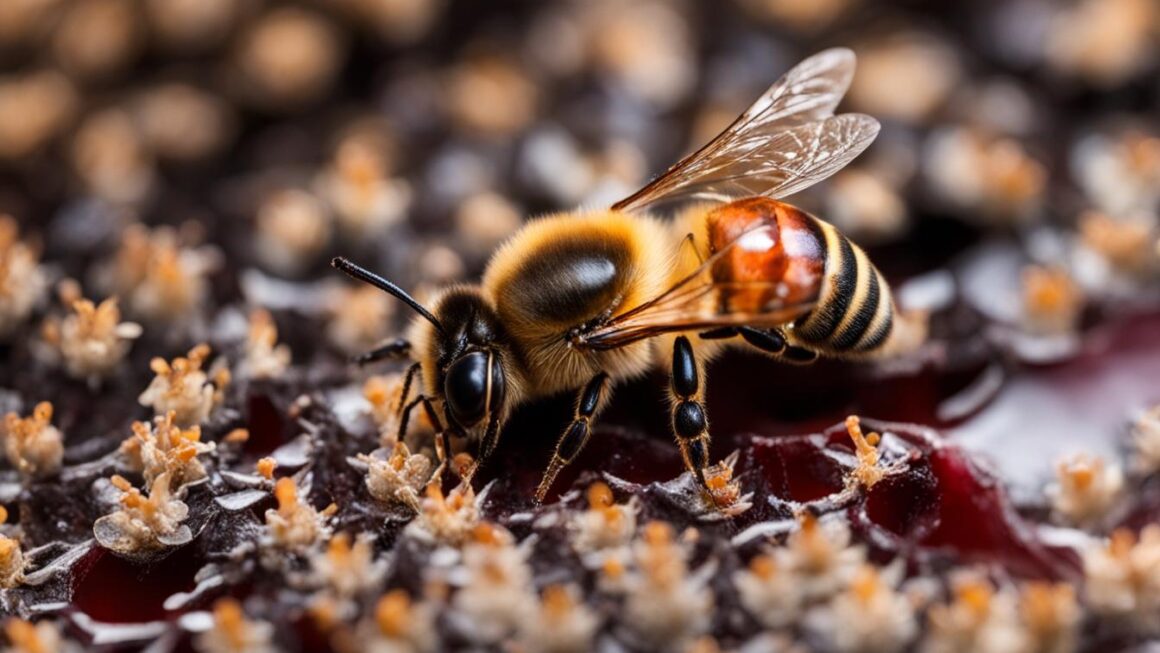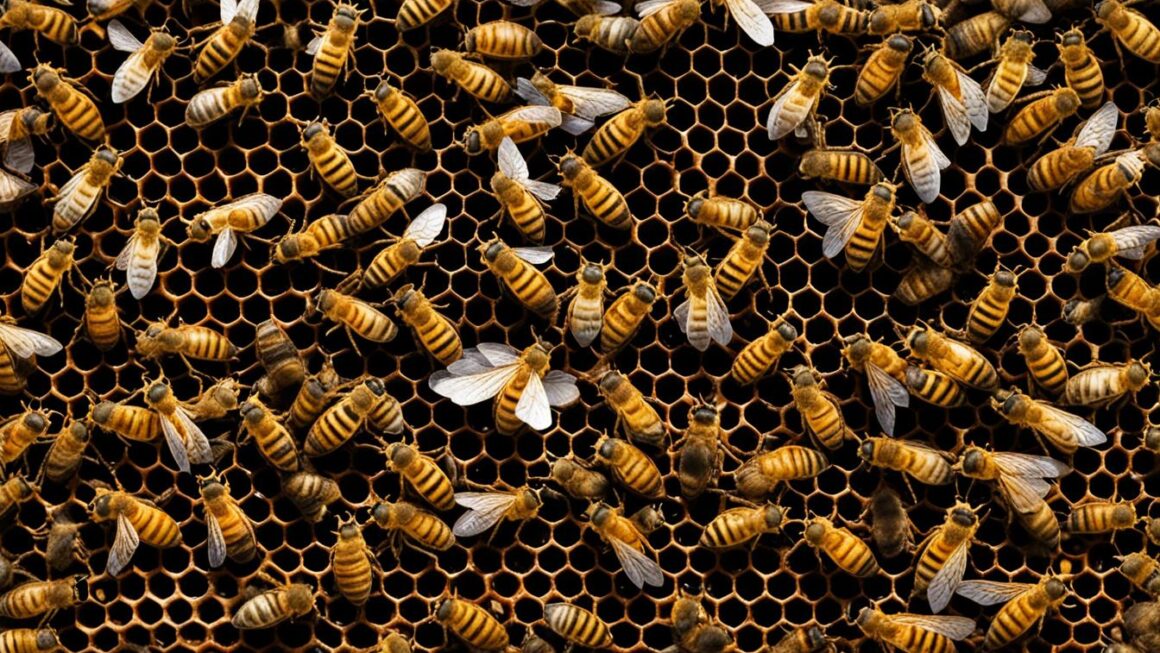Have you ever been called a “queen bee”? While you may think it’s a compliment, you may be surprised to learn that the connotation behind this phrase is not always positive. In this section, we will explore the true meaning and perception of being labeled a queen bee.
The term “queen bee” is often used to describe a female who holds a position of power or influence within a group. While this may seem like a compliment, the underlying connotation is not always favorable. Some associate queen bees with negative characteristics such as being controlling, manipulative, and arrogant.
It is important to note that the perception of being called a queen bee can vary depending on the context. For example, some may see it as a compliment for someone who is confident and assertive, while others may view it as an insult for someone who is overly dominant and dismissive.
As we continue to explore the true meaning and perception of the queen bee label, it is important to consider the potential positive and negative aspects of being assigned this title.
Key Takeaways:
- The term “queen bee” is often used to describe a female who holds a position of power or influence within a group.
- The connotation behind the label is not always positive and can be associated with negative characteristics such as being controlling and manipulative.
- The perception of being called a queen bee can vary depending on the context and individual perspectives.
Understanding the Queen Bee Stereotype
Queen bees are often portrayed in the media as popular, attractive, and powerful. However, this stereotype can be misleading. In reality, individuals who are labeled as queen bees may exhibit behavior that is controlling, manipulative, and exclusionary.
Studies have found that queen bee behavior can manifest in a variety of ways, including:
| Behavior | Description |
|---|---|
| Undermining | Queen bees may use subtle tactics to undermine the confidence and credibility of others, such as withholding information or taking credit for their work. |
| Exclusionary | Queen bees may exclude others from social events or important conversations, creating a sense of isolation and inferiority. |
| Controlling | Queen bees may use their power to control the actions and decisions of others, often for their own benefit. |
It is important to note that not all individuals who are labeled as queen bees exhibit these negative behaviors. Additionally, the queen bee stereotype can be harmful as it reinforces gendered expectations of power and leadership.
In the workplace, queen bee behavior can create a toxic environment that can negatively impact productivity and morale. It is important for organizations to address this issue and promote inclusive and supportive team dynamics.
“The ‘queen bee’ label implies that women cannot work together without one assuming a dominating, hierarchical role. This is simply not true, and it is important to challenge this stereotype and promote cooperative, collaborative workplace cultures.”
Overall, the queen bee stereotype is a complex issue that requires further examination and discussion. It is important to recognize that individuals should not be judged based on labels or stereotypes, but rather on their individual behavior and actions.
The Positive Aspects of Being a Queen Bee
While the term “queen bee” may carry negative connotations for some, there are also positive aspects associated with being referred to as such. In certain contexts, being called a queen bee can be seen as a compliment and a recognition of one’s leadership, confidence, and competence.
One advantage of being a queen bee is the power dynamic it implies. Queen bees are typically at the top of their social or professional hierarchies, commanding respect and admiration from their peers. This can lead to greater opportunities for networking, collaboration, and career advancement.
Furthermore, queen bees often possess key leadership skills, such as the ability to communicate effectively, make tough decisions, and inspire others. These skills can be highly valued in the workplace and can contribute to a successful career.
Research has also shown that being called a queen bee can have positive effects on an individual’s self-esteem. A study found that women who identified as queen bees reported feeling more satisfied with their work and personal lives, as well as having higher levels of self-esteem than those who did not identify as such.
Examples of Successful Queen Bees
| Name | Profession | Notable Achievements |
|---|---|---|
| Oprah Winfrey | Media Mogul | Founder of OWN Network, recipient of numerous awards and honors including the Presidential Medal of Freedom |
| Sheryl Sandberg | Business Executive | COO of Facebook, founder of Lean In Foundation, best-selling author |
| Michelle Obama | Author and Activist | Former First Lady of the United States, founder of Let’s Move! Initiative, bestselling author |
As demonstrated by these successful women, being a queen bee can be a powerful tool for achieving one’s goals and making an impact. However, it is important to note that the term can also be used to undermine and belittle women in positions of power. As with any label, the interpretation of “queen bee” depends on the context and intent of those using it.
Overall, while being referred to as a queen bee may not be universally seen as a compliment, there are certainly positive aspects associated with the term. Embracing one’s leadership skills and utilizing them to achieve success can be empowering, regardless of the label attached.
The Negative Aspects of Being a Queen Bee
While being referred to as a queen bee may have its perks, this label also comes with its fair share of negative implications.
One of the biggest downsides of being a queen bee is the impact it can have on personal relationships. Individuals who are labeled as such may be seen as controlling, manipulative, or intimidating, leading others to feel uncomfortable or even fearful around them.
Furthermore, the queen bee stereotype often carries a negative connotation in the workplace. Women who are labeled as queen bees may be viewed as difficult to work with, hindering their career advancement opportunities.
Another negative aspect of being a queen bee is the pressure to maintain the image and reputation associated with the label. This can lead to burnout, anxiety, and an inability to express vulnerability or seek help.
In addition, being labeled as a queen bee can create a self-fulfilling prophecy. Individuals may feel pressured to live up to the expectations associated with the label, leading them to undertake behaviors such as exclusion or manipulation to stay in control.
It is crucial for individuals to be mindful of the negative implications that come with the queen bee label. While it may seem flattering at first, it can have lasting impacts on personal and professional relationships. Embracing individuality and moving beyond labels can help lead to a more fulfilling and authentic life.
Unraveling the Connotation of Queen Bee
While the term “queen bee” is often associated with a powerful and dominant woman, its connotation can vary depending on the context in which it is used.
Historically, the queen bee was revered as the leader of her colony, praised for her strength and ability to lead and protect her hive. However, in modern times, the phrase has taken on a more negative connotation, often used to describe women who are seen as bossy or manipulative.
Despite the mixed connotation of the term, being called a queen bee can be empowering for some women, who view it as a recognition of their leadership skills and ability to take charge. However, for others, it can be demeaning and limiting, reducing their worth to a stereotype.
It is crucial to recognize that the connotation of the term “queen bee” is not fixed and can vary based on personal perspectives and the context in which it is used. It is essential to avoid making assumptions based solely on this label and to look beyond it to understand the individual and their unique qualities and abilities.
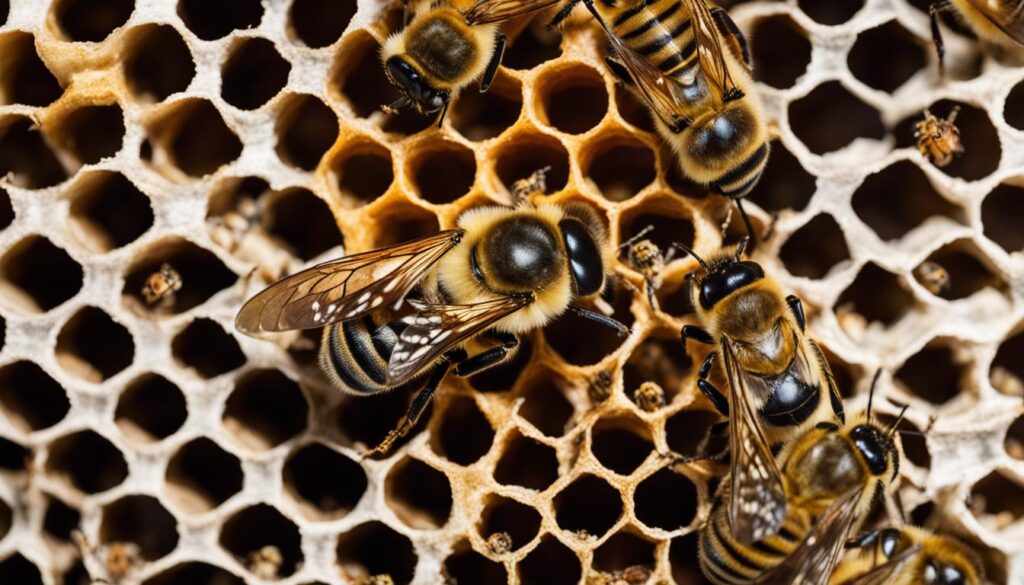
As we move forward, we must strive to break free from limiting stereotypes and labels and instead celebrate the diversity and individuality of all women. By recognizing and valuing each person’s unique qualities and abilities, we can create a more inclusive and empowering environment for all.
Debunking Misconceptions about Queen Bees
Queen bees are often portrayed as manipulative, power-hungry women who will stop at nothing to maintain their position of authority. However, these stereotypes are often based on misconceptions and are not an accurate representation of the true nature of queen bees.
One common misconception is that queen bees are always mean and rude to others. While it is true that some queen bees may exhibit these negative traits, it is not a universal characteristic of all individuals who hold this title. Many queen bees are respected for their intelligence, leadership skills, and ability to handle difficult situations with ease.
Another misconception is that queen bees are only concerned with their own success and will not hesitate to throw others under the bus to get ahead. In reality, many queen bees are team players and recognize the importance of collaboration and cooperation in achieving shared goals. They may be ambitious and driven, but this does not necessarily mean they are ruthless or selfish.
| Myth | Reality |
|---|---|
| Queen bees are always mean and rude to others. | While some queen bees may exhibit negative traits, many are respected for their leadership skills and ability to handle difficult situations with ease. |
| Queen bees are only concerned with their own success and will not hesitate to throw others under the bus to get ahead. | Many queen bees recognize the importance of collaboration and teamwork in achieving shared goals, and are not necessarily ruthless or selfish. |
It is also important to note that not all women who are labeled as queen bees actually identify with this title. Some may reject it as a limiting label that fails to capture the full range of their abilities and characteristics.
“Being called a queen bee can be both empowering and limiting. While it acknowledges my abilities as a leader, it also puts me in a box and assumes certain qualities that may not actually apply to me.” – Sarah, Executive Director
By debunking these misconceptions, we can gain a more accurate view of what it truly means to be a queen bee. While not all individuals who hold this title are perfect, they should not be unfairly judged based on inaccurate stereotypes. It is important to approach each person as an individual with their own unique strengths and weaknesses.
Is Being a Queen Bee Empowering or Demeaning?
The question of whether being called a queen bee is empowering or demeaning is a controversial one. The answer lies in the connotation and context of the phrase.
Some individuals may perceive being called a queen bee as a compliment due to the positive connotation of the word “queen.” It suggests authority, strength, and power. However, others may interpret it as a derogatory label that implies bossiness, arrogance, and a lack of empathy.
“I think being called a queen bee can be empowering if it is used to acknowledge a woman’s leadership skills and ability to inspire others. However, it can also be demeaning if it is directed towards a woman who is seen as controlling or manipulative.” – Jane Smith, Leadership Coach
It is essential to consider the context in which the phrase is used. For instance, in a male-dominated workplace, being called a queen bee may be viewed negatively as a way to undermine a woman’s authority. In contrast, in a female-led community, it may be perceived as a term of endearment or even a badge of honor.
Ultimately, the answer to whether being a queen bee is empowering or demeaning depends on personal perspectives and how the label is used. It is crucial to examine the context, intent, and underlying meaning behind the phrase and evaluate its impact on personal growth and relationships.
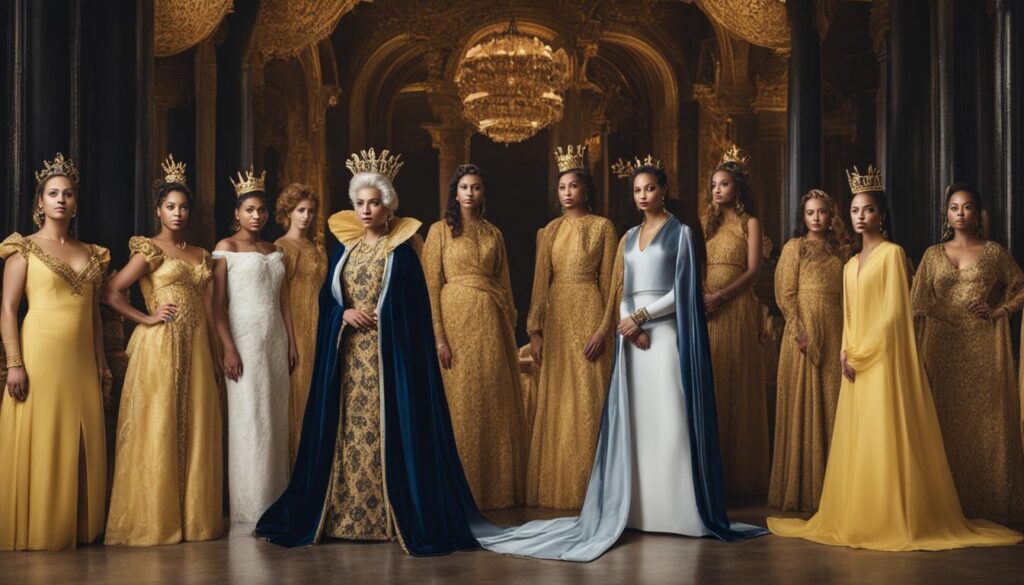
Embracing Individuality beyond Queen Bee Labels
While being labeled a queen bee can come with certain advantages, it is important to remember that no one label defines an individual. Embracing individuality means recognizing that each person has unique characteristics and qualities that cannot be reduced to a single stereotype.
It is natural to want to fit in and be accepted by others, but this should not come at the cost of sacrificing one’s true self. Moving beyond queen bee labels means embracing interests and behaviors that may not conform to societal expectations. It means having the confidence to express oneself authentically and not being afraid to stand out.
One way to embrace individuality is to explore personal passions and hobbies. Whether it is playing a musical instrument, participating in a sport, or pursuing an artistic endeavor, having a personal outlet can provide a sense of fulfillment and purpose beyond any label.
Another way to move beyond queen bee labels is to cultivate meaningful relationships based on genuine connections rather than superficial status. This means valuing people for who they are rather than what they can offer in terms of popularity or social clout.
“To be yourself in a world that is constantly trying to make you something else is the greatest accomplishment.” – Ralph Waldo Emerson
Ultimately, embracing individuality means defining one’s worth beyond labels. It means recognizing that true worth comes from within and cannot be measured by external factors. By embracing individuality, we can cultivate a sense of authenticity and confidence that goes beyond any label or stereotype.
Conclusion
In conclusion, the phrase “queen bee” is a complex label with both positive and negative connotations. While some may view it as an empowering term, others may perceive it as demeaning or potentially harmful. It is important to recognize the stereotypes and misconceptions that surround the queen bee label and move beyond these limiting definitions.
Understanding Context
The perception of being called a queen bee can vary depending on the context in which it is used. In some situations, it may be seen as a compliment, while in others, it may be interpreted as a form of intimidation or exclusion. It is crucial to consider the intent behind the label and evaluate its impact on both the individual and the wider community.
Embracing Individuality
Ultimately, it is essential for individuals to define their worth beyond labels and embrace their unique qualities. Rather than striving to fit into predefined roles or stereotypes, we should celebrate our individuality and encourage others to do the same. By embracing our true selves, we can find greater fulfillment and create a more inclusive and accepting society.
Thank you for taking the time to explore this topic with us. We hope this article has provided valuable insights and encouraged you to reflect on the impact of labels and stereotypes in your own life.
FAQ
Is being called a queen bee a compliment?
Whether being called a queen bee is a compliment or not depends on personal perspectives and the context in which it is used. Some may see it as a term of empowerment and admiration, while others may perceive it as a veiled insult or negative stereotype. It is important to consider the intent behind the label and how it aligns with individual values and self-perception.
What is the meaning of queen bee?
The term “queen bee” typically refers to a woman who holds a position of power or influence. It often connotes someone who is confident, assertive, and takes charge. However, the meaning can vary based on individual interpretations and cultural contexts.
What are the characteristics associated with queen bees?
Queen bees are often associated with traits such as assertiveness, confidence, leadership, and ambition. They may exhibit strong communication skills, decision-making abilities, and a desire for control. It is important to note that not all individuals labeled as queen bees possess these characteristics, as stereotypes do not apply to everyone.
Are there any positive aspects of being a queen bee?
Being referred to as a queen bee can have positive aspects. It may indicate that an individual is perceived as strong, influential, and capable of leading others. The label can bring opportunities for career advancement, respect, and recognition. However, it is essential to consider the potential drawbacks and ensure that power is used responsibly and compassionately.
What are the potential negative implications of being called a queen bee?
Being labeled a queen bee can have negative implications. It may lead to misconceptions, stereotypes, and strained relationships. Some people may view queen bees as overly controlling, intimidating, or lacking in empathy. The label can create barriers to collaboration and hinder personal growth if it reinforces negative behaviors or limits the development of supportive relationships.
How is the connotation of queen bee perceived in different contexts?
The connotation of queen bee can vary in different contexts. In some situations, it may be seen as a positive attribute, indicating strength, leadership, and achievement. However, in other contexts, it can imply negativity, suggesting dominance, manipulation, or egoism. The perception of the connotation often depends on the specific environment, cultural norms, and individual experiences.
What are some common misconceptions about queen bees?
There are several common misconceptions about queen bees. One misconception is that all individuals labeled as queen bees possess the same characteristics or exhibit toxic behavior. This generalization overlooks the diversity of personalities and leadership styles. Another misconception is that queen bees are solely motivated by power and self-interest, disregarding their potential to inspire and support others.
Is being called a queen bee empowering or demeaning?
The debate on whether being called a queen bee is empowering or demeaning is subjective. Some individuals may find the label empowering, as it recognizes their leadership skills and accomplishments. Others may perceive it as demeaning, associating it with negative stereotypes or limiting gender roles. It ultimately depends on personal perspectives and the individual’s perception of the term.
How can individuals embrace their individuality beyond queen bee labels?
To embrace their individuality beyond queen bee labels, individuals can focus on self-acceptance and authenticity. It is essential to define one’s worth beyond external labels and societal expectations. This involves recognizing and celebrating unique strengths, values, and passions, while also embracing vulnerability, growth, and empathy. By cultivating self-awareness and fostering genuine connections with others, individuals can break free from limiting labels and embrace their true selves.

